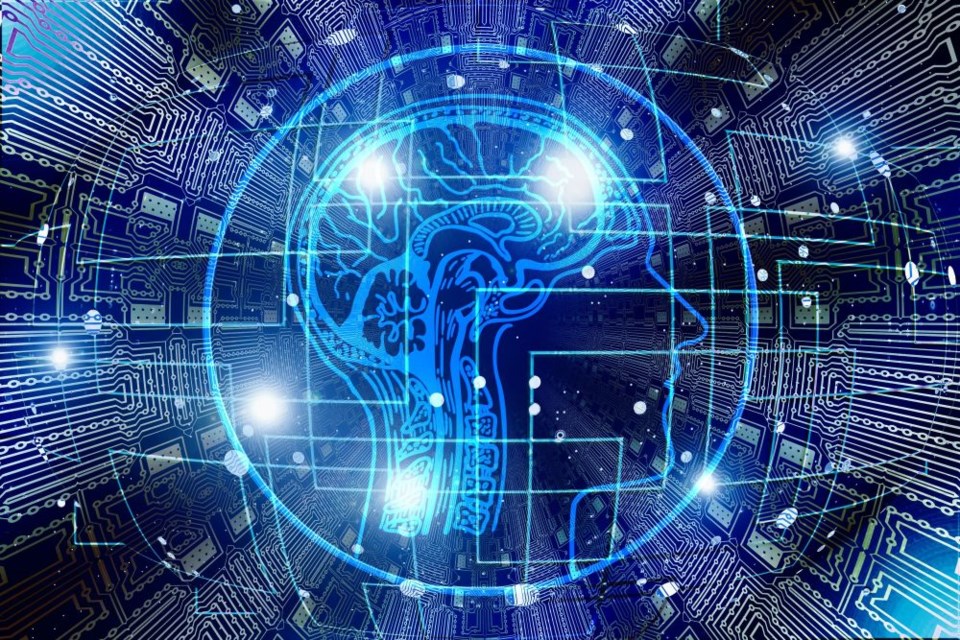Technology
AI’s Rapid Integration Sparks Human Connections in Daily Life

The introduction of artificial intelligence (AI) into daily life has reached a point where its presence is almost ubiquitous. Since the launch of OpenAI’s ChatGPT in November 2022, AI has evolved rapidly, with numerous models now available that surpass earlier capabilities. A recent exploration by journalist A. J. Jacobs highlights the challenges of avoiding AI, revealing how integrated it has become in urban environments like New York City.
As of November 2025, AI technology is not just a novelty; it is embedded in various aspects of our lives, whether through traditional or generative means. This integration raises questions about the nature of human interaction in an increasingly automated world. For instance, Jacobs’ experience attempting to evade AI for 48 hours underscores the difficulty many face in disengaging from these technologies.
Examples of AI’s reach are evident in everyday scenarios. In August 2022, a realization struck when an automated voice read one of Jacobs’ columns in the Richmond News, showcasing how AI-generated content can mimic human interaction. Such instances are not isolated. Automated systems, like voicemail services, sometimes produce amusing errors, such as mispronouncing locations. In Jacobs’ case, an AI mispronounced “Burnaby” as “Burn Abbey,” illustrating both the usefulness and limitations of the technology.
The emotional impact of AI on human interactions is significant. Writers from The Guardian, including Alaina Demopoulos and Emma Beddington, have voiced their concerns regarding the use of AI in personal contexts, such as dating. Demopoulos described the trend of men relying on AI for date planning as “the ultimate ick,” while Beddington expressed her desire to celebrate individuality in a world dominated by generative AI.
While not everyone actively engages with AI, many, including Jacobs, feel its effects. He notes a renewed appreciation for human kindness during his interactions with strangers. A recent encounter with a young man from Fortis exemplified this. When Jacobs asked for assistance with a heavy load, the young man willingly helped, demonstrating an unexpected act of kindness.
Similarly, at the Richmond Recycling Depot, an employee went out of his way to recycle an item not typically accepted, reflecting a human touch that contrasts sharply with automated systems. These experiences underscore a potential shift in human behavior, suggesting that as AI becomes more prevalent, people may gravitate towards authentic connections.
The etymology of the word “kind” sheds light on this phenomenon. Deriving from the Old English terms related to family and nature, “kindness” emphasizes innate qualities that bind people together. As AI continues to evolve, the value of human interactions may take on new significance.
In a world where the line between the real and the virtual is increasingly blurred, the innate human qualities of empathy and kindness stand out. Jacobs expresses gratitude for real human connections, a sentiment that may resonate with many. As technology develops, it is essential to maintain a balance, celebrating the unique aspects of human interaction that AI cannot replicate.
The ongoing dialogue around AI’s influence on society reflects a broader trend of reevaluating human connections in the face of increasing automation. As we navigate this evolving landscape, the importance of kindness and genuine interaction may become more pronounced, reminding us of what it means to be human in a world increasingly dominated by technology.
-

 Education3 months ago
Education3 months agoBrandon University’s Failed $5 Million Project Sparks Oversight Review
-

 Science4 months ago
Science4 months agoMicrosoft Confirms U.S. Law Overrules Canadian Data Sovereignty
-

 Lifestyle3 months ago
Lifestyle3 months agoWinnipeg Celebrates Culinary Creativity During Le Burger Week 2025
-

 Health4 months ago
Health4 months agoMontreal’s Groupe Marcelle Leads Canadian Cosmetic Industry Growth
-

 Science4 months ago
Science4 months agoTech Innovator Amandipp Singh Transforms Hiring for Disabled
-

 Technology4 months ago
Technology4 months agoDragon Ball: Sparking! Zero Launching on Switch and Switch 2 This November
-

 Education4 months ago
Education4 months agoRed River College Launches New Programs to Address Industry Needs
-

 Technology4 months ago
Technology4 months agoGoogle Pixel 10 Pro Fold Specs Unveiled Ahead of Launch
-

 Business3 months ago
Business3 months agoRocket Lab Reports Strong Q2 2025 Revenue Growth and Future Plans
-

 Technology2 months ago
Technology2 months agoDiscord Faces Serious Security Breach Affecting Millions
-

 Education4 months ago
Education4 months agoAlberta Teachers’ Strike: Potential Impacts on Students and Families
-

 Science4 months ago
Science4 months agoChina’s Wukong Spacesuit Sets New Standard for AI in Space
-

 Education3 months ago
Education3 months agoNew SĆIȺNEW̱ SṮEȽIṮḴEȽ Elementary Opens in Langford for 2025/2026 Year
-

 Technology4 months ago
Technology4 months agoWorld of Warcraft Players Buzz Over 19-Quest Bee Challenge
-

 Business4 months ago
Business4 months agoNew Estimates Reveal ChatGPT-5 Energy Use Could Soar
-

 Business4 months ago
Business4 months agoDawson City Residents Rally Around Buy Canadian Movement
-

 Business4 months ago
Business4 months agoBNA Brewing to Open New Bowling Alley in Downtown Penticton
-

 Technology2 months ago
Technology2 months agoHuawei MatePad 12X Redefines Tablet Experience for Professionals
-

 Technology4 months ago
Technology4 months agoFuture Entertainment Launches DDoD with Gameplay Trailer Showcase
-

 Technology4 months ago
Technology4 months agoGlobal Launch of Ragnarok M: Classic Set for September 3, 2025
-

 Technology4 months ago
Technology4 months agoInnovative 140W GaN Travel Adapter Combines Power and Convenience
-

 Top Stories3 months ago
Top Stories3 months agoBlue Jays Shift José Berríos to Bullpen Ahead of Playoffs
-

 Science4 months ago
Science4 months agoXi Labs Innovates with New AI Operating System Set for 2025 Launch
-

 Technology4 months ago
Technology4 months agoNew IDR01 Smart Ring Offers Advanced Sports Tracking for $169










